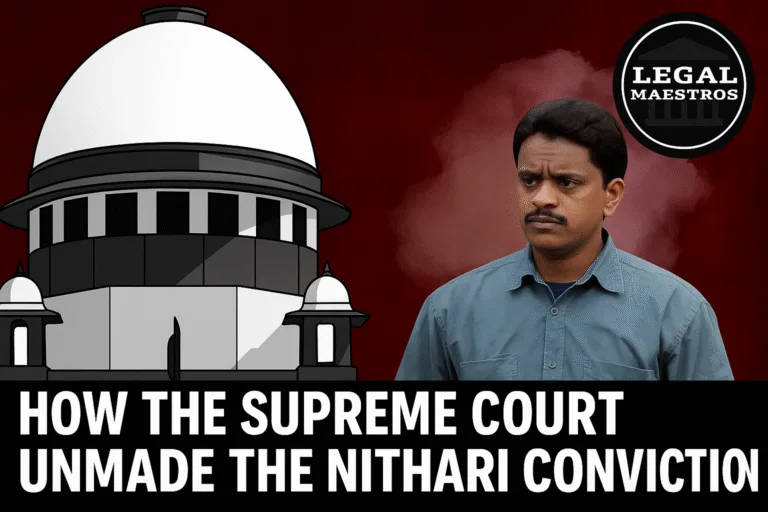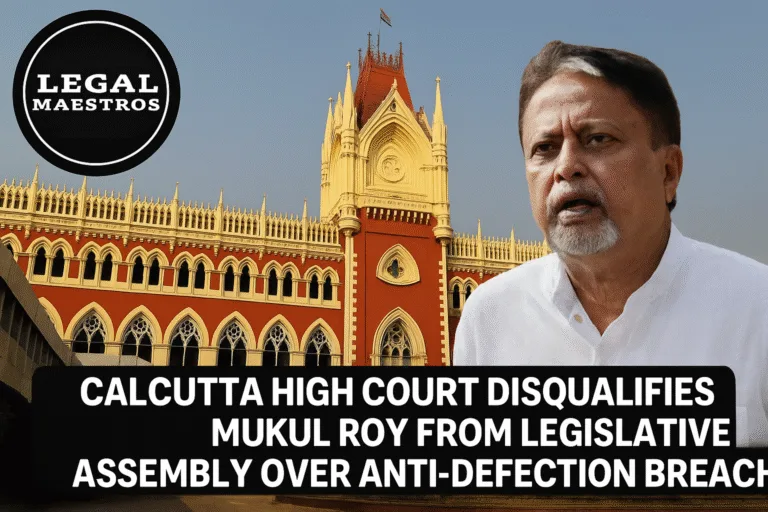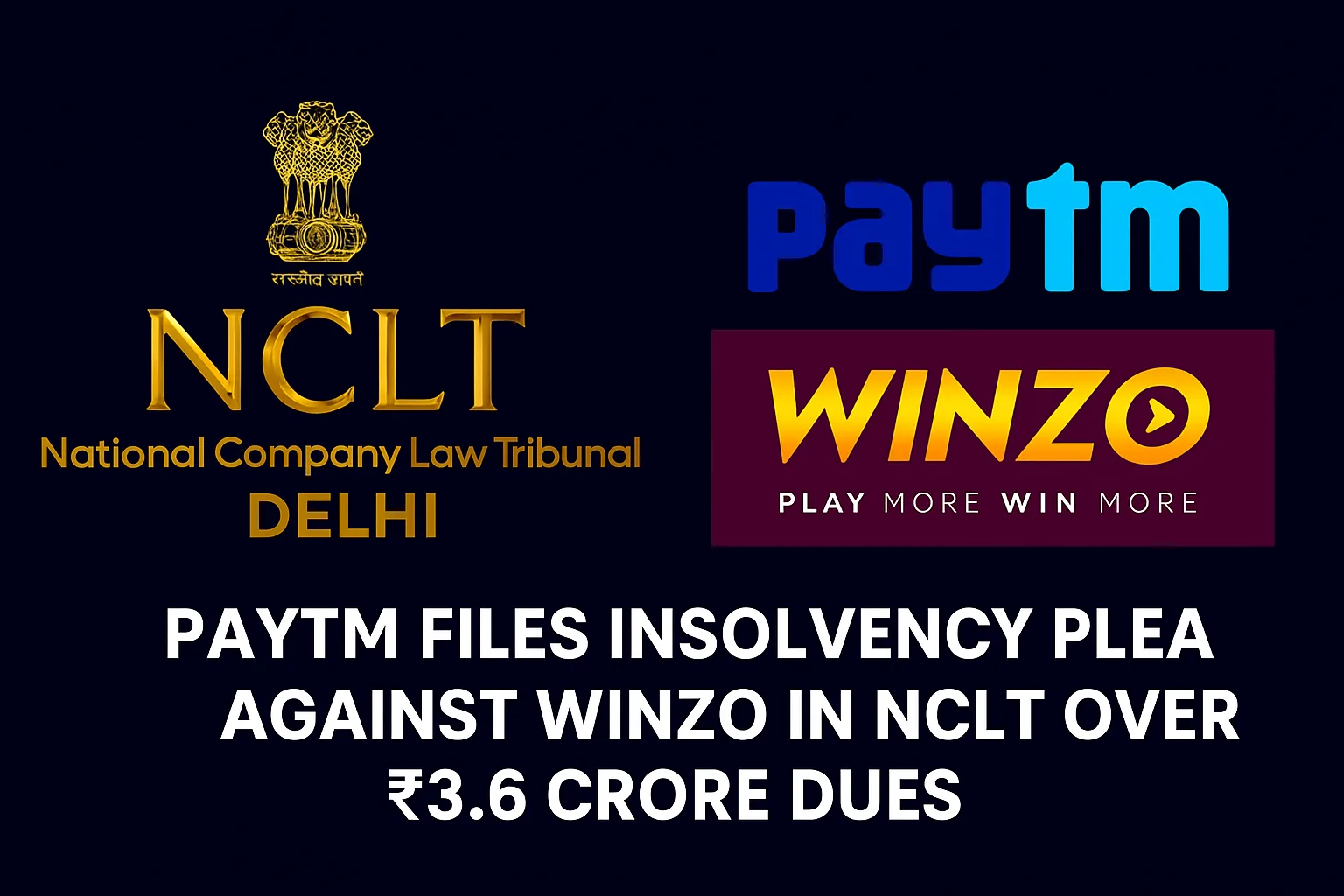
Surya Kant + Joymalya Bagchi = Nightmare for Cyber Extortionists: SC Goes Nuclear against Digital Arrest Loot
However, Supreme Court declares war on the digital arrest scams.
The alarming increasing trend of the so-called digital arrests has been strictly checked by a Supreme Court bench including Justice Surya Kant and Justice Joymalya Bagchi who have assumed a no-nonsense attitude. The bench has turned into a nightmare to cyber extortionists meaning that the era of simple advisories is long gone. The tough response by the court is an indication that it is a new dawn of responsibility behind the crime that has deprived citizens of crores of rupees.
This is a pervasive threat that has been received by the apex court as a suomoto. This implies that the case has been launched by the court itself, as the matter has been considered as a serious danger to society. The bench is not regarding this type of cyber extortion as a mere fraud, but as an organized and advanced crime. This motion subjects the matter to the utmost court review.
The case was precipitated by a letter by a sitting judge at the High Court, pointing out at the extent to which the problem has become widespread and serious. This fact emphasized the urgency of the situation to the Supreme Court. The bench pointed out that when these well-placed people are being targeted, the common citizen must be in much worse state.
For any queries or to publish an article or post or advertisement on our platform, do call at +91 6377460764 or email us at contact@legalmaestros.com.
The phenomenon has been termed by the court as a digital terror and extortion. The aggressive and hostile questioning by the bench is evidence of its desire to go nuclear on the fraudsters. It is ceasing to be the responsibility of the police it is now high time the court requested answers to the government, banks and telecom companies.
The Anatomy of an Online Extortion.
The scam of the digital arrest is a frightening type of psychological blackmail. It starts with a phone call of a scammer posing as a senior officer. They can purport to be of the CBI, the Enforcement Directorate, the local police and even the Telecom Regulatory Authority of India (TRAI). They reach out to give an authority and urgency tone to cause immediate panic.
The scammer will then accuse the victim of a serious fabricated crime. Somebody may claim to have intercepted a parcel of illegal drugs, guns, and forged passports in the name of the victim. In other instances, they claim that the bank accounts or Aadhaar number of the victim has been utilized in a huge money laundering or terror related case.
For any queries or to publish an article or post or advertisement on our platform, do call at +91 6377460764 or email us at contact@legalmaestros.com.
This will be preceded by the actual digital arrest. The victim is informed that he is being watched and that he can not dial out the line. They are pressurized into a video session, usually using Skype or WhatsApp, during which they are spied on by hours. To bring the threat to reality, the fraudsters demonstrate them the counterfeit IDs, the forged FIRs, and other official-appearing documents.
The extortion starts after hours of constant psychological torture. The victim is informed that their bank accounts will be frozen and they would be immediately arrested. The fraudster then provides an expedited remedy to clear his name. This is done by depositing huge amounts of money to a designated account in order to be verified which the victim in his state of panic does.
The Supreme court bench saw that it is not merely financial fraud, but it is a virtual kidnapping. The victim is alienated, scared and mentally shattered. The court is furious because this is a gross infringement on individual freedom which is done by just making a phone call.
For any queries or to publish an article or post or advertisement on our platform, do call at +91 6377460764 or email us at contact@legalmaestros.com.
Alarm in Court at Deep-rooted Conspiracy.
The precision of the scammers was the thing that aroused the greatest concern of the bench of Justice Kant and Justice Bagchi. On several occasions, they would wonder how these identity thieves have the precise and personal information of their victims. This usually contains their complete name, their mobile number and in some few cases even their Aadhaar number or bank details which they utilise to validate their fake official identity.
Such detail in high degree points to a deep-rooted conspiracy. The court has come out clearly to say that it suspects insider involvement. The bench is investigating the fact of huge data breaches or the presence of rogue employees in the banks, telecommunication companies or even government data storage facilities who are selling this sensitive information to criminals.
According to the court, this is a menace that takes advantage of the digital infrastructure that India has constructed. The systems they have developed to make life easier to citizens like e-KYC, digital payments, and connection with Aadhaar, are being turned to weapons. The questions of the bench indicated a structural malfunction of these corporations and agencies in safeguarding the data of the citizens.
For any queries or to publish an article or post or advertisement on our platform, do call at +91 6377460764 or email us at contact@legalmaestros.com.
These frauds, as pointed out by the judges, are not done by small time criminals but by well organized and technology oriented gangs. These gangs are usually based in other nations, hence being very hard to trace and convict. This global aspect puts the issue to a greater level than just a locally committed crime; it makes the problem a national security issue.
A Demand of Centralized Action and Accountability.
The Supreme Court has sent the formal notices to some of the key government bodies and the regulators. These are the Union Home ministry, the Ministry of electronics and information technology (MeitY), the reserve bank of India (RBI), and TRAI. The bench has insisted that they should submit affidavits outlining what they are actually doing to prevent this digital loot.
Justice Kant and Justice Bagchi were so harsh on the existing redressal system that is fragmented. They also noted that a victim has now to flee to pillar and post. They are forced to visit the local police who in most cases lack the capacity to deal with cybercrime, then visit their bank and the telecom provider yet no one takes complete responsibility.
For any queries or to publish an article or post or advertisement on our platform, do call at +91 6377460764 or email us at contact@legalmaestros.com.
The court is stridently urging to establish a single unified mechanism. The bench has proposed a centralized location or a nodal agency at which a victim can report the crime. This agency should be given the mandate to act swiftly to prevent the fraudulent accounts, trace the stolen money, and organize with the police.
Another area that the bench is appealing to is the responsibility of banks and telecom companies. It also raised the question as to why their platforms are being easily used in committing these crimes. The court is also inquiring banks of what technology they apply to flag these high-value, suspicious transactions. It is posing a question to the telecom companies as to why they are unable to block the origin of these impersonating, fraudulent calls.





![Research Assistantship @ Sahibnoor Singh Sindhu, [Remote; Stipend of Rs. 7.5k; Dec 2025 & Jan 2026]: Apply by Nov 14, 2025!](https://legalmaestros.com/wp-content/uploads/2025/11/Gemini_Generated_Image_s0k4u6s0k4u6s0k4-768x707.png.webp)
![Karanjawala & Co Hiring Freshers for Legal Counsel [Immediate Joining; Full Time Position in Delhi]: Apply Now!](https://legalmaestros.com/wp-content/uploads/2025/11/Gemini_Generated_Image_52f8mg52f8mg52f8-768x711.png.webp)